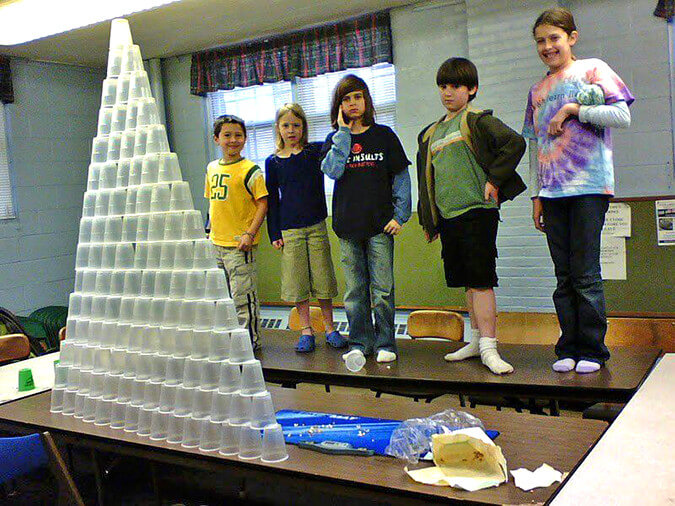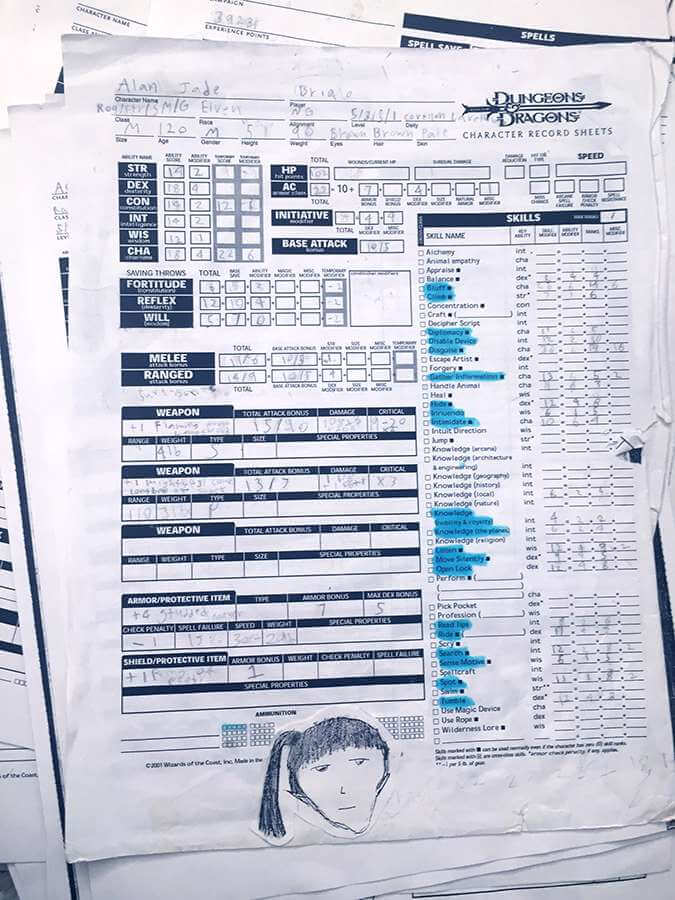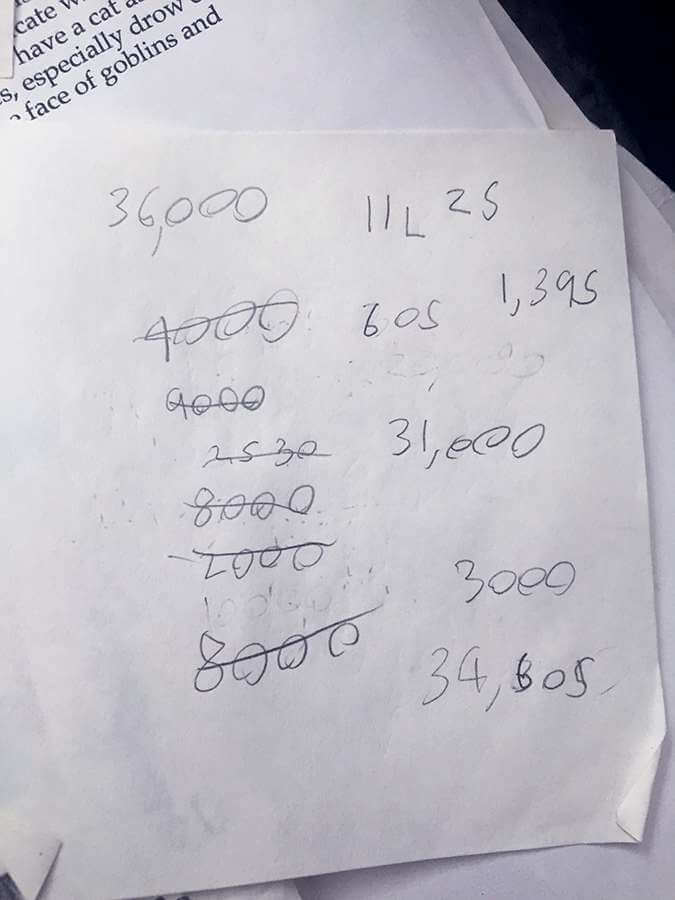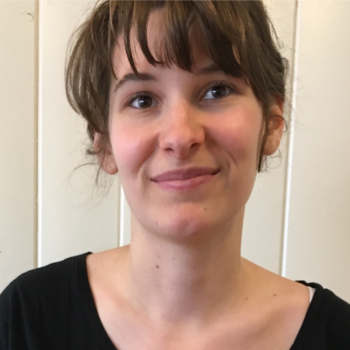Recently, in one of the homeschooling parent groups I’ve joined, someone posted a poll called, “What subjects do you still require?”
The poll included classics such as math, science, language, history, art, music, physical education, and some less typical subjects such as sex education and ethics. In the comments, people talked about the subjects that are the most important to them, how they “integrate” these into daily life, and why certain subjects were more important specifically for their kid(s).
Of course, I can personally name about twenty subjects that were missing from this list, and I’m sure anyone else could identify twenty more. And I know exactly which subject is the most important to me.
Years ago, my friend made a very astute observation about me, she said “Bria wants to open a school for people who are like her.” This comment, which I assume was meant as a compliment, caused my stomach to flip uncomfortably. She wasn’t wrong, I had wanted to start a school for people like me because in my mind, what I personally needed was what was missing from the education system. For years, I assumed something that many of us assume—that every child learns in the way that I do and needs the same things that I need, and I had planned to design my school based on that assumption.

For me, the most important “subject” is kinesthetics: dance, lifting weights, cycling, yoga, martial arts. This is what I needed the most in life while growing up, and something that I still need today. For the actress Jennifer Lawrence, as she’s made clear through her foundation, the most important subject is the arts. For my father, it is writing and programming, for my mother it is permaculture. Of course, for the conventional school systems, the most important subjects appear to be science, technology, engineering, and math, also known as STEM.
Each person, and system, has their own favored subject, a subject they believe will save the school system and the lives of the young people within it, and possibly even the world. This means that there are thousands of subjects that someone believes to be the “most important” one. We constantly put subjects into hierarchies that are meaningless to everyone except ourselves. Yet, we think these hierarchies represent the truth about what’s important, just as I did when I planned to create a school based on what I saw as the solution to school that everyone needs. Adults have a tendency to believe that these personally chosen hierarchies are good for everyone; there has to be a subject that’s more necessary than another, right?
It’s not the subject that matters, but the process of living and learning, and many of these “subjects” are learned as a byproduct of living life. If you are living a self-directed life, you wouldn’t be requiring young people to learn any particular subjects. In fact, you wouldn’t see learning as segregated into “subjects” at all. Learning is a natural result of living and is happening all the time.

You can learn a great amount of spelling and vocabulary by playing Minecraft, for example, as my stepson does every day. You can learn intrapersonal and interpersonal expression by dancing, as my mother has throughout her life. You can learn psychology and communication through acting, as many of my friends can attest. You can learn strategic thinking through board, tabletop miniature, and computer games (just ask my brother). You can learn to read and do math by playing Pokémon. And I won’t even get in to the complexities of what I learned playing Dungeons and Dragons (D&D), and the worlds of interests that D&D led to. The list goes on. These skills are side effects of having the opportunity to do what you want in your daily life and to focus on what really interests you. Labeling these experiences as subjects, putting them into hierarchies, and focusing on what you believe every young person must learn often causes learning to be segregated in a way that’s not natural, interesting, or compelling for those involved in it. Instead, it becomes information that is completely detached from joyfully and naturally living life.

The answer to the question that most unschoolers have heard, “But how will they learn math?” is, simply put, “When they want and need to.” If someone does happen to miss learning a subject that they end up needing later in life, then the material taught in school can be learned on your own whenever you care to learn it, likely in far less time than is spent in a classroom setting. For example, having done very little formal math, and forgotten the little that I had done, I chose to take algebra and pre-calculus in community college classes when I was 16, and learned them just as easily as my fellow classmates. This is especially true if you are a learner who has been self-directing your education for your entire life, and you are already skilled at finding the resources, mentors, or other things you need to learn something. My friend, a chemist, recently decided that he wanted to be a programmer instead. He learned programming on his own, without formal schooling, in less than a year, and is a happily employed web developer.
This process of learning “important subjects” in school or school-like home settings, is a waste of time. These subjects are often imposed on students through requirements set for them by someone else, at a time in their lives when these subjects likely feel neither relevant nor interesting. The coercive process, and time you are required to spend studying them, is neither the most enjoyable nor most effective. Most people can learn things easily and quickly when they feel compelled to do so.
For me to let go of my biases, and be a better parent to a self-directed young person, I had to stop viewing subjects, detached from life, as important. I also had to stop mentally putting these experiences into hierarchies. I have to constantly remind myself that certain activities and learning processes are not better than others. I have to continue to check myself when I feel myself judging what others, including my stepson, are choosing to do with their time. I have to remember that living is learning. And I have to remember that what I love to do, is just that, it’s what I love; it’s not what someone else does, or should, love to do.
If you enjoyed this article and feel called to give back to ASDE, here are ways you can support our work:
- Donate money
- Share our content with others! Click one of the buttons above to easily share on Twitter, Facebook, or email.
- Consider becoming a Contributor for Tipping Points
Tipping Points Magazine amplifies the diverse voices within the Self-Directed Education movement. The views expressed in our content belong solely to the author(s). The Alliance for Self-Directed Education disclaims responsibility for any interpretation or application of the information provided. Engage in dialogue by reaching out to the author(s) directly.






